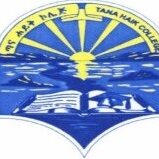Capacity Building Programs at Tana Haik College: Strengthening Skills and Enhancing Organizational Effectiveness
Tana Haik College’s Capacity Building Programs are designed to enhance the skills and capabilities of individuals and organizations, fostering growth and development across various sectors. These programs aim to build knowledge, improve performance, and drive effective change by providing targeted training, workshops, and resources.
Objectives of Capacity Building Programs
The primary objectives of the Capacity Building Programs at Tana Haik College are to:
- Enhance Skills and Competencies: Provide training and development opportunities to improve the skills and competencies of individuals and teams.
- Strengthen Organizational Effectiveness: Support organizations in improving their internal processes, management practices, and overall efficiency.
- Promote Professional Growth: Equip professionals with the knowledge and tools needed for career advancement and personal development.
- Foster Innovation and Change: Encourage innovative thinking and problem-solving to drive progress and adapt to changing environments.
Key Components of Capacity Building Programs
- Training Workshops
- Skill Development Workshops: Interactive sessions focused on specific skills such as leadership, project management, financial management, and communication.
- Technical Training: Programs that provide technical skills related to industry-specific tools and technologies, such as software applications, data analysis, and engineering practices.
- Soft Skills Training: Workshops that enhance interpersonal skills, including teamwork, negotiation, conflict resolution, and time management.
- Consulting Services
- Organizational Assessment: Evaluation of organizational practices, processes, and structures to identify areas for improvement and development.
- Customized Solutions: Tailored consulting services to address specific needs and challenges faced by organizations, including strategic planning, process optimization, and change management.
- Expert Guidance: Access to experts and consultants who provide insights and recommendations based on industry best practices and research.
- Leadership Development Programs
- Executive Training: Programs designed for senior leaders and executives to enhance their strategic thinking, decision-making, and leadership abilities.
- Emerging Leaders: Training for emerging leaders to develop essential leadership skills and prepare for higher-level responsibilities.
- Mentorship and Coaching: Personalized coaching and mentorship to support leadership growth and career development.
- Workforce Development
- Career Advancement Programs: Training and resources to help individuals advance their careers, including resume writing, interview preparation, and job search strategies.
- Certification Programs: Professional certifications that validate skills and knowledge in specific fields, enhancing employability and career prospects.
- Community and Sector-Specific Programs
- Community Development: Programs aimed at building capacity within local communities, including training for community leaders, local government officials, and non-profit organizations.
- Sector-Specific Training: Specialized programs for specific sectors such as healthcare, education, agriculture, and manufacturing, addressing industry-specific challenges and opportunities.
- Educational Resources and Tools
- Learning Materials: Provision of educational resources such as textbooks, case studies, and online modules to support learning and development.
- Technology Integration: Training on the use of educational technologies and tools to enhance learning experiences and operational efficiency.
Benefits of Capacity Building Programs
- Improved Performance and Efficiency
- Enhanced Skills: Participants gain new skills and knowledge that directly impact their performance and productivity.
- Optimized Processes: Organizations benefit from improved processes and practices, leading to increased efficiency and effectiveness.
- Professional Growth and Career Advancement
- Career Development: Individuals have the opportunity to advance their careers through targeted training and certification programs.
- Leadership Development: Enhanced leadership skills contribute to personal and professional growth, preparing individuals for higher-level roles.
- Organizational Improvement
- Effective Management: Improved management practices lead to better organizational performance and outcomes.
- Strategic Growth: Organizations can strategically plan and implement changes to achieve their goals and adapt to market changes.
- Innovation and Adaptability
- Creative Solutions: Capacity building fosters innovative thinking and problem-solving, helping individuals and organizations stay competitive and adaptable.
- Change Management: Effective training in change management supports successful transitions and organizational development.
- Community and Sector Impact
- Community Development: Capacity building programs contribute to the development and empowerment of local communities.
- Sector Growth: Sector-specific training supports industry growth and development, addressing challenges and opportunities within specific fields.
Enrollment and Participation
To participate in Tana Haik College’s Capacity Building Programs, interested individuals and organizations can:
- Explore Available Programs: Review the catalog of training workshops, consulting services, and development programs offered by the college.
- Register or Apply: Complete the registration process for individual programs or contact the college for customized consulting services.
- Participate in Training: Attend workshops, sessions, and consultations as scheduled, and take advantage of available resources and support.
- Provide Feedback: Share feedback on the programs to help the college improve and tailor future offerings.

